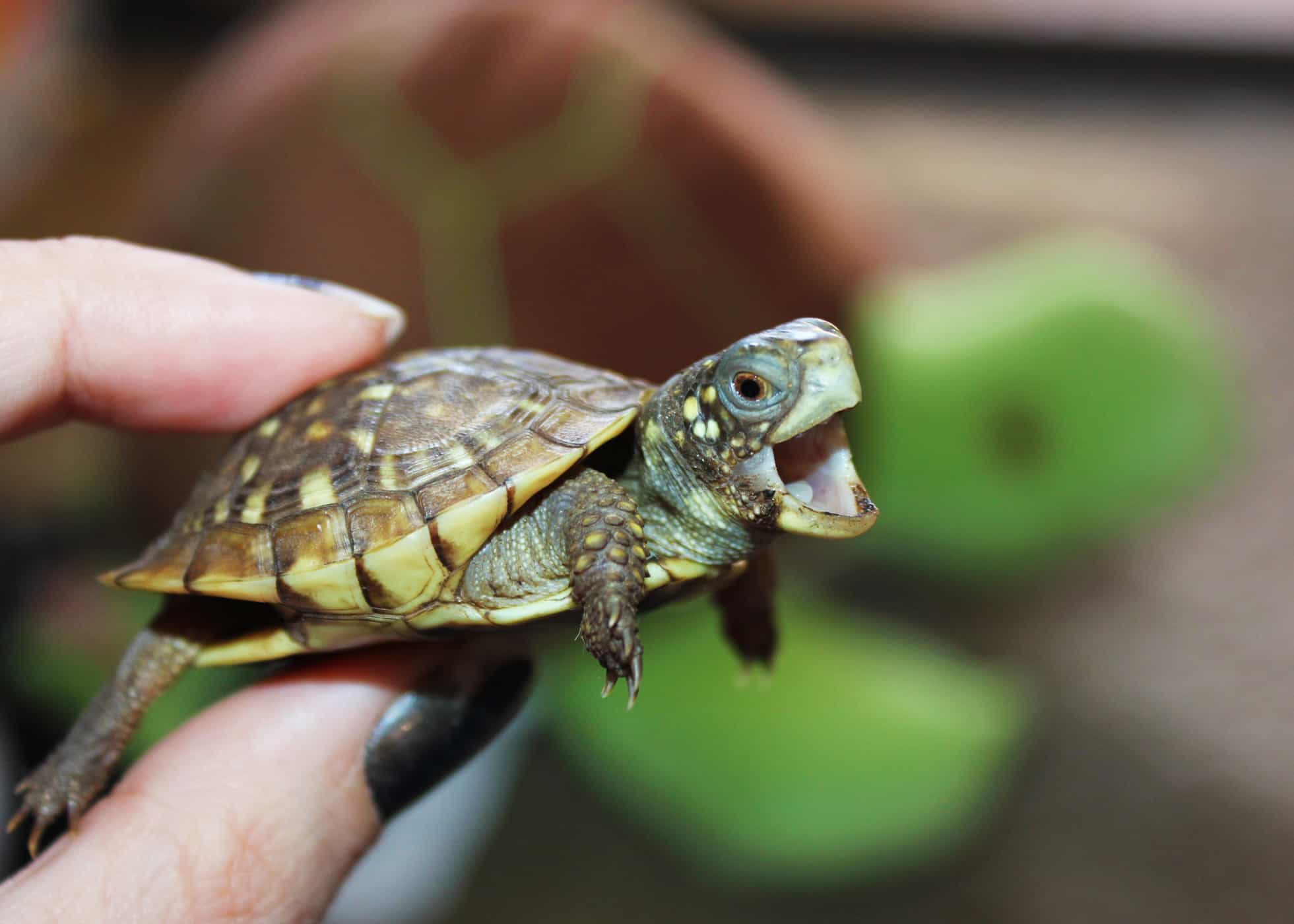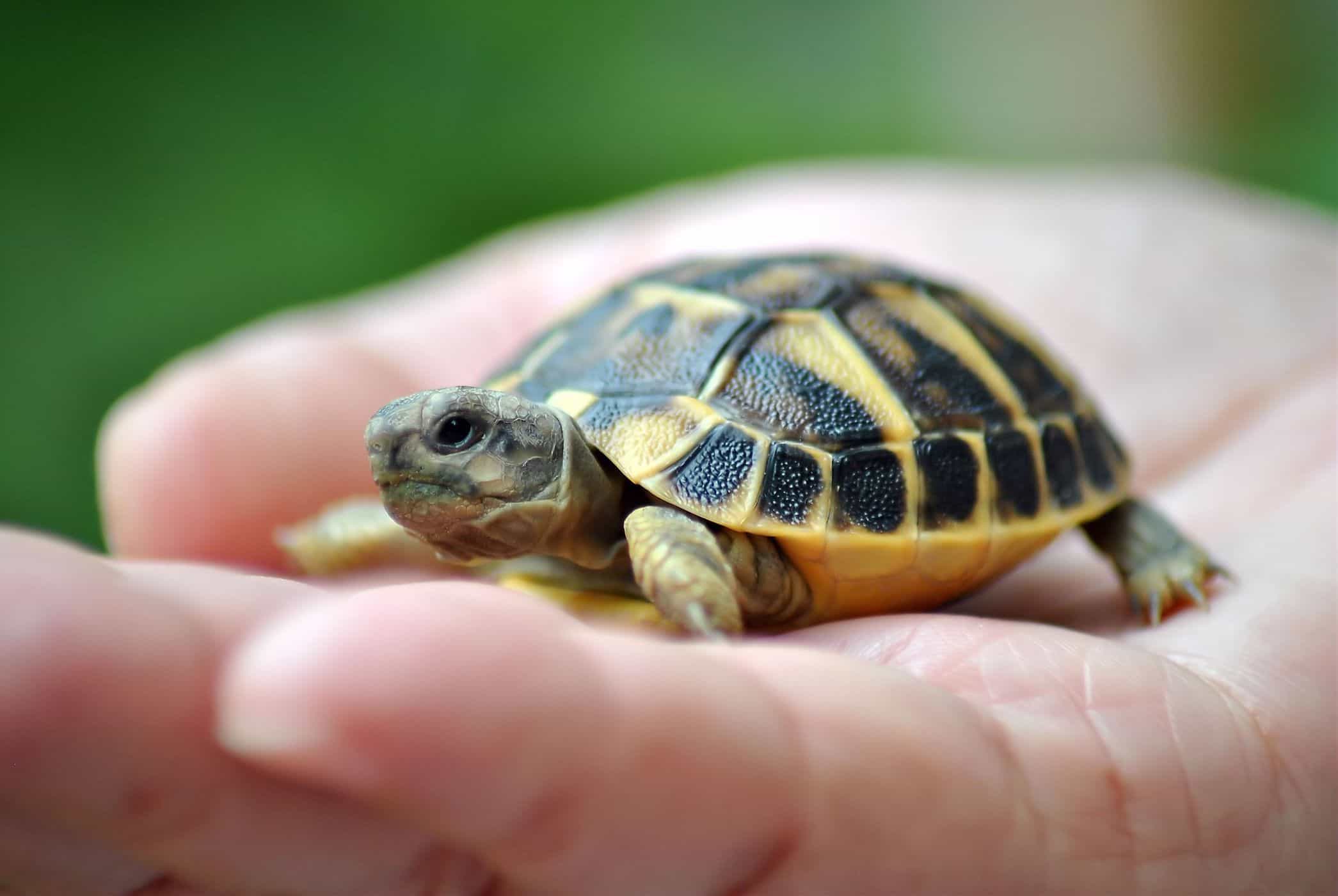Contents:
- Medical Video: Baby Red Eared Slider Turtle Vet Eemrgency Metabolic Bone Disease Soft Shell
- Maintaining a turtle can be one of the causes of the Salmonella outbreak
- Get to know infectious diseases caused by Salmonella
- Who is most at risk for Salmonella infection?
- Prevent infection if you keep turtles at home
Medical Video: Baby Red Eared Slider Turtle Vet Eemrgency Metabolic Bone Disease Soft Shell
At first glance, small turtles look adorable and harmless. If you are one of the people who keeps turtles, you must be vigilant. Because the turtle is known as a natural carrier of Salmonella bacteria that can cause serious infections or even threaten a person's life.
Maintaining a turtle can be one of the causes of the Salmonella outbreak
From March to August 2017, salmonella outbreaks occur in various states in the United States (US). After further investigation, it was found that 45 percent of people infected with Salmonella bacteria did touch, maintain, or play with turtles before.
According to the Centers for Disease Control and Prevention (CDC) in the US, there are certain behaviors that increase the risk of people caring for salmonella-infected turtles. Among them are kissing the turtle, letting turtles roam the kitchen and table where food and drinks, and when cleaning the area that has been passed by the turtle.
Turtles are known to carry Salmonella bacteria on the surface of their skin and shell. Actually not only turtles, all types of reptiles and amphibians such as iguanas and crabs have the potential to be carriers of Salmonella bacteria.
Get to know infectious diseases caused by Salmonella
Salmonella is a bacterium that causes it typhoid disease, enteritis, salmonellosis, and various other types of infectious diseases.
The main symptoms of salmonella infection are diarrhea. In addition, someone who has a Salmonella infection will also experience abdominal cramps, fever, headaches, vomiting, and blood out during bowel movements. When you are infected with the Salmonella bacteria, you will not immediately feel sick. The symptoms of the disease usually only appear at least two to three days after you are contaminated with bacteria.
Because it does not cause direct symptoms, this makes Salmonella an infection that is not easy to know. That is why, it is necessary to do a special examination, so you really know whether you are infected with the Salmonella bacteria or not.
Diseases caused by this bacterial infection can be serious. Especially if you have experienced severe dehydration or the bacteria has spread out of the intestine into the blood. This condition can be life threatening if not treated immediately.
Who is most at risk for Salmonella infection?
Anyone can get Salmonella infection. However, the highest risk occurs in infants and children. Even if the little turtle doesn't look sick or in good condition, it's still possible to carry Salmonella bacteria.
Unfortunately, most young children don't understand this danger. When your little one plays with a turtle, they often kiss the turtle, poke on the pond or turtle aquarium, then without washing their hands put their fingers in their mouth or eat immediately. This is what increases the risk of salmonella infection.
In addition, small children and babies also have not developed their immune systems as well as adults. As a result, even though their parents are not infected with Salmonella bacteria, children who care for turtles may get this infection.
In addition to babies and children, pregnant women, the elderly, people who have a low immune system, have certain medical conditions such as cancer, HIV / AIDS, diabetes, and other diseases are also susceptible to salmonella infection.
Prevent infection if you keep turtles at home
The main principle in preventing bacterial infections from turtles is actually quite simple. Take care of the cleanliness and environment around the turtle. Especially if you have a baby or toddler. However, there are several other important things that must be considered if you want to keep turtles at home, namely:
- Place a turtle cage outside the house.
- Always use gloves when making direct contact with turtles or when cleaning their cages.
- Washing hands You are with soap and warm water after touching turtles and other creeping animals.
- If you want to clean the turtle cage, clean it outside the house. Don't clean it in the bathroom, especially in the sink.
- To prevent cross contamination, if you want to bathe a turtle, you should also bathe it in a small plastic tub or a special trash can for turtles. In essence, make sure if the equipment for turtles is not mixed with your items and family use everyday.
All of the things mentioned above have been done not only to prevent the spread of Salmonella bacteria, but also as an effort to protect your health and your family. Even though most turtles sold on the market are sold at cheap prices and look so adorable, you should not buy turtles as pets for children.













